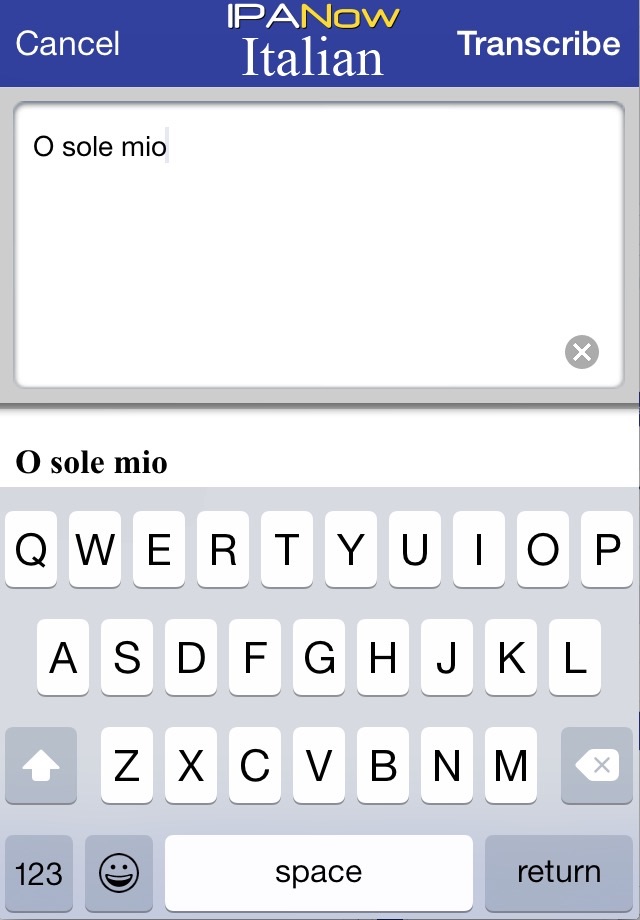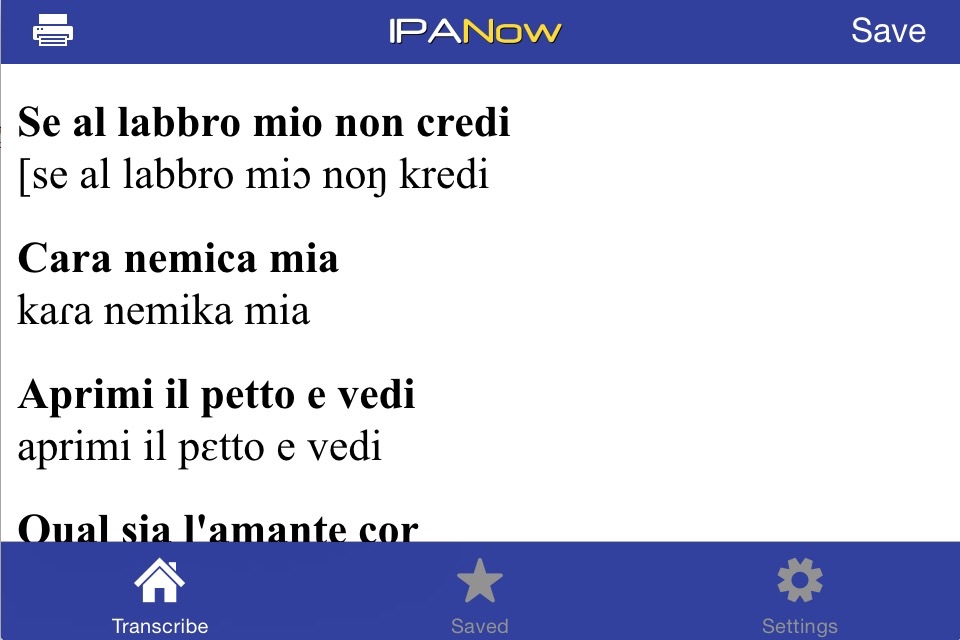
IPANow! Italian app for iPhone and iPad
Developer: PhoneticSoft
First release : 14 Feb 2012
App size: 7.08 Mb
IPANow! by PhoneticSoft is a unique app that automatically transcribes Italian texts into International Phonetic Alphabet (IPA) symbols by applying rules utilized by scholarly lyric diction textbooks.
Simply type or paste in a text, tap a button, and IPANow! produces a phonetic transcription underneath each line of text.
Key features:
*Easy-to-use! Simply type or paste a text in and tap a button.
*Copy/paste transcription output to an email or other apps.
*Print transcriptions directly from your device (with AirPrint).
*Save transcriptions for later.
*Customize the transcription output based on your preferences.
Designed by a choral conductor and vocalist, IPANow! is a lyric diction resource for choral conductors, professional vocalists, church musicians and music educators, but anyone can use it. IPANow! allows choral directors to easily produce professional-looking phonetic transcriptions of foreign language texts to distribute to choir members. We believe you will find IPANow! an invaluable resource.
Latest reviews of IPANow! Italian app for iPhone and iPad
As a singer, I find this very handy. Just put in your Italian text, and out comes IPA! There are settings you can tweak for open vs. closed vowels, etc. you can save your excerpts and print them. Very nicely done!
This app is a handy tool for vocalists, conductors, linguists, and many other professionals. You can paste an Italian text in and instantly see a phonetic transcription. Print, save, and share it easily. Highly recommended!
Easy to use with accurate results!! Highly recommend!!!
Im a singer and I have been waiting for an app like this! Its simple, easy to use and I havent found a mistake yet. Must have for any vocalist. The other ipanows are just as awesome.
This gets most everything right, but is very inconsistent with the most frustrating facets of Italian diction -- open vs. closed E/O and voiced vs. unvoiced z/zz. It has the most basic ones, but not everything.



